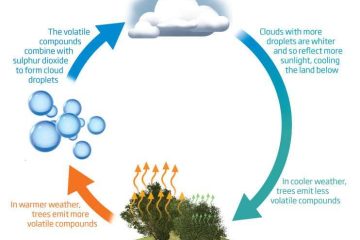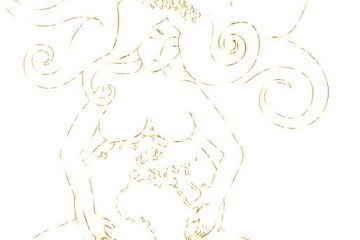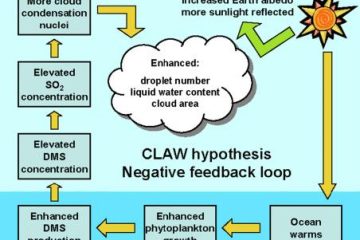In the vast tapestry of our planet’s ecosystems lies a fascinating theory that sees Earth not just as a collection of life forms, but as a living, breathing entity in itself. Welcome to the world of the Gaia Hypothesis, where nature’s intricate web is woven into a grand orchestration of balance and harmony. Join us on a journey to unravel the mysteries of this captivating concept and explore the profound connection between all living things and the planet we call home. Let’s delve into the depths of Gaia’s embrace and discover the intricate dance of life that sustains our world.
Table of Contents
- Discovering the Intriguing Origins of the Gaia Hypothesis
- Exploring the Interconnectedness of Earth’s Systems
- Unveiling the Role of Living Organisms in Environmental Balance
- Implementing Gaia Theory Principles for Sustainable Living
- Q&A
- Closing Remarks
Discovering the Intriguing Origins of the Gaia Hypothesis
Exploring the enigmatic concept of the Gaia Hypothesis unveils a captivating journey into the interconnectedness of Earth’s ecosystems. This revolutionary theory postulates that our planet functions as a self-regulating organism where living organisms and the environment interact harmoniously to maintain life’s equilibrium.
- Immerse yourself in the thought-provoking origins of the Gaia Hypothesis.
- Discover the visionary minds behind this groundbreaking ecological theory.
- Uncover the profound implications of viewing Earth as a single, self-sustaining entity.
Delving into the depths of the Gaia Hypothesis invites introspection on humanity’s role in preserving the delicate balance of nature. By recognizing Earth as a living system, we are compelled to reconsider our relationship with the planet and embrace a more conscientious approach towards environmental stewardship.

Exploring the Interconnectedness of Earth’s Systems
The Gaia hypothesis proposes an intriguing perspective on the interconnectedness of Earth’s various systems. At its core, the hypothesis suggests that the Earth functions as a self-regulating organism, where living organisms and their inorganic surroundings interact to form a complex and unified system. This theory challenges traditional views of Earth as a passive planet and instead portrays it as a dynamic and interconnected entity.
<p>Central to the Gaia hypothesis is the idea that the Earth's atmosphere, oceans, and ecosystems work together to maintain conditions suitable for life. This intricate web of interactions highlights the delicate balance that exists between different components of the planet. From the cycling of nutrients to the regulation of temperature, every element plays a vital role in sustaining life on Earth. Embracing the concept of Gaia can lead to a deeper appreciation of the planet's resilience and the importance of preserving its delicate equilibrium.</p>
Unveiling the Role of Living Organisms in Environmental Balance
Exploring the intricate web of interconnectedness within our ecosystems reveals a fascinating dance of life, where every organism plays a vital role. From the tiniest microbes in the soil to the majestic trees in the forest, each entity contributes to maintaining the delicate balance of nature. In this grand symphony of existence, the Gaia hypothesis emerges as a compelling theory that views the Earth as a self-regulating system, where living organisms interact with their environment to sustain life.
<p>At the heart of the Gaia hypothesis lies the concept of **homeostasis**, where the Earth's biota and physical environment work in harmony to create conditions favorable for life. This theory suggests that living organisms, collectively known as the biosphere, actively participate in regulating various environmental factors such as temperature, atmospheric composition, and nutrient cycling. By recognizing the profound influence of living organisms on the Earth's systems, we gain a deeper appreciation for the interconnectedness and complexity of our planet's ecosystems.</p>
Implementing Gaia Theory Principles for Sustainable Living
When looking to adopt sustainable living practices, integrating Gaia Theory principles can be a transformative approach. By aligning our behaviors and choices with the interconnectedness of all living organisms on Earth, we can work towards a more harmonious relationship with our planet. Embracing concepts such as holistic thinking and dynamic equilibrium can guide us towards creating more environmentally conscious lifestyles.
Through recycling and repurposing materials, reducing waste production, and promoting biodiversity, individuals can contribute to the overall health of the Earth. By recognizing our role as stewards of this interconnected system, we can strive to live in a way that benefits not only ourselves but also the entire planet. Implementing Gaia Theory principles offers a unique perspective on sustainability, emphasizing the importance of nurturing and preserving the delicate balance of life on Earth.
Q&A
Q: What is the Gaia Hypothesis?
A: The Gaia Hypothesis, proposed by scientist James Lovelock in the 1970s, suggests that the Earth functions as a self-regulating system, maintaining conditions suitable for life.
Q: How does the Gaia Hypothesis work?
A: According to the Gaia Hypothesis, living organisms interact with their inorganic surroundings on Earth to form a complex, self-regulating system that helps to maintain the planet’s environmental conditions within a narrow range that is conducive to life.
Q: What are the implications of the Gaia Hypothesis?
A: The Gaia Hypothesis challenges the traditional view of Earth as a passive host to life and highlights the interconnectedness of all living and non-living components on the planet. It raises awareness about the fragility and resilience of Earth’s ecosystems.
Q: How does the Gaia Hypothesis impact our understanding of environmental issues?
A: The Gaia Hypothesis underscores the importance of preserving the delicate balance of Earth’s ecosystems in the face of human activities that can disrupt this equilibrium. It calls for a more harmonious relationship between humanity and the environment.
Q: What are some criticisms of the Gaia Hypothesis?
A: Critics of the Gaia Hypothesis argue that it personifies Earth and overemphasizes the level of coordination between living organisms and their environment. Some scientists question the extent to which Earth can be viewed as a self-regulating entity.
Closing Remarks
In conclusion, the Gaia hypothesis offers a fascinating perspective on the interconnectedness of our planet and all living organisms. By viewing Earth as a self-regulating system, this theory challenges us to rethink our relationship with the environment and strive for a more harmonious coexistence. As we ponder the complexities of Gaia, let us remember that we are but a small part of a grander scheme, where every creature and element plays a crucial role in maintaining the delicate balance of life. Embracing this interconnected web of existence may lead us towards a future where Earth and all its inhabitants thrive in unity. Let us continue to explore, learn, and respect the intricate tapestry of Gaia’s living biosphere.



0 Comments